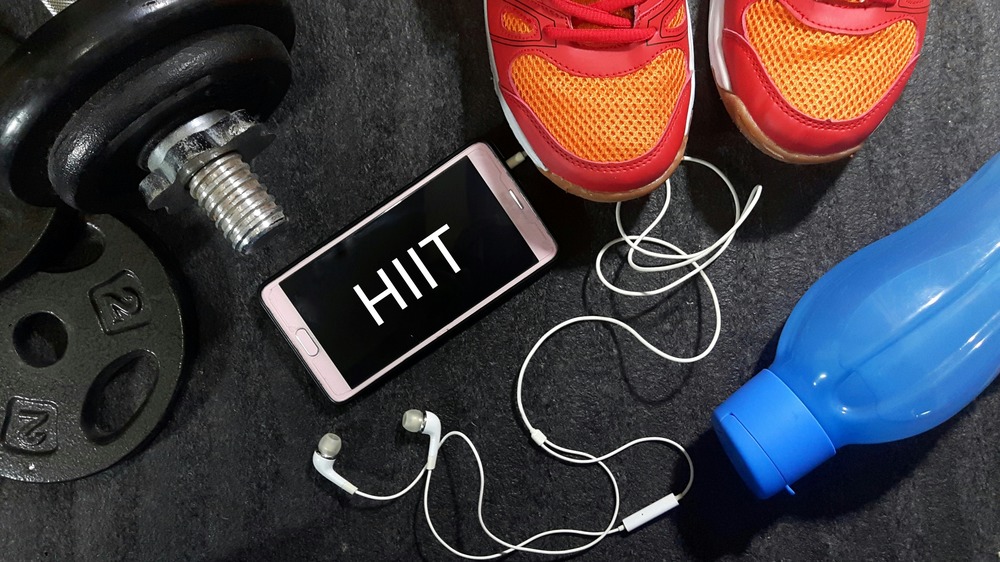HIIT Vs. Cardio: Which One Is Better For You?
Whether you're a regular gym rat or brand new to exercise, you may have heard about a trend sweeping the fitness world. It's called HIIT, which stands for high-intensity interval training, and it revolves around short bursts of very intense exercise, followed by periods of less intense work. But is it better for you than a traditional cardio workout? That depends largely on your goals, according to Old School Labs.
Traditional cardio workouts, called steady-state cardio, require raising your heart rate and increasing breathing to a high, but steady rate. HIIT, which can also be called high-intensity intermittent exercise or sprint interval training, calls for a mix of high-intensity, then low-intensity exercise performed in bursts of 30 seconds to three minutes. The low-intensity exercise is usually performed for half the time of the high-intensity work. The goal during the high-intensity phase is to raise your heart rate to between 80 and 95 percent of your target heart rate, according to VerywellFit.
If you're training for something that requires endurance, like a marathon, then steady-state cardio is your best bet. But for almost everything else, including weight and fat loss, HIIT is the clear choice.
HIIT has some significant benefits
For the time invested, HIIT routines require more calorie burn than traditional cardio. The workouts are shorter than most regular cardio sessions, so it's an efficient way to fit calorie burn into a packed schedule. The high-intensity portions of HIIT are known as anaerobic exercise, and they reach into stored energy resources in your muscles to power you through, according to Old School Labs. If you push yourself during the high-intensity part of the workout, your body will take longer to return to its resting state, which keeps your metabolism fired up longer.
Overall, HIIT has been shown to have significant health benefits, according to Vox. Studies have found it effective in building heart-health by increasing the volume of oxygen that the body calls upon. HIIT also seems to fight diabetes, improve blood pressure, and lower cholesterol, according to Livestrong.
All that being said, HIIT isn't for everyone. People new to exercise, those with problems moving, or with injuries are not good candidates for HIIT training. And, as with all exercise, it needs to be combined with a healthy diet to see maximum effects.


